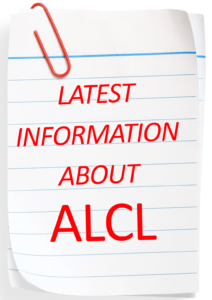
The American Society of Plastic Surgeons (ASPS) and the American Society for Aesthetic Plastic Surgery (ASAPS) are committed to patient safety, advancing quality of care, and practicing medicine based upon the best available scientific evidence on breast implants and have issued the following joint statement on Breast Implant associated ALCL (BI-ALCL).
“The American Society of Plastic Surgeons (ASPS) and the American Society for Aesthetic Plastic Surgery (ASAPS) would like to make members aware of a recent safety communication update to the Food and Drug Administration (FDA) website regarding breast implant-associated anaplastic large cell lymphoma (BIA-ALCL).
The March 21 website update acknowledges that while it remains difficult to determine the exact number of BIA-ALCL cases, there have now been 359 medical device reports (MDR) reported to the FDA Manufacturer and User Facility Device Experience (MAUDE) database as of Feb. 1, 2017. Of these MDRs, the FDA reports that 232 included information on the breast implant device, with 203 identified as textured, 28 smooth and one identified as “another surface.” The update also confirms that both silicone gel and saline implants have been reported in cases of BIA-ALCL.”
- In January 2016, the United States FDA provided an update to the 2011 safety communication that identified a possible association between breast implants and the development of ALCL, a rare type of non-Hodgkin’s lymphoma. According to the World Health Organization, BI-ALCL is not a breast cancer or cancer of the breast tissue; it is a lymphoma, a cancer of immune cells. Women with breast implants may have a very low, but increased risk of developing ALCL adjacent to a breast implant.
- Treatment and outcomes data exist on BI-ALCL from case series, and more information is needed to fully understand risk factors, etiology, and epidemiology. An observation of reported cases indicates a predominance of textured device involvement. The association with breast implants is likely multifactorial and is currently being extensively studied.
- ASPS and ASAPS recommend educating breast implant patients on the risk of BI-ALCL and the early detection of symptoms. Women with breast implants are encouraged to contact their plastic surgeon if they notice swelling, fluid collections, or unexpected changes in breast shape.
- In symptomatic patients suspicious for BI-ALCL, perform an ultrasound and send suspicious peri-prosthetic fluid for CD30 immunohistochemistry, cell block cytology, and culture. Surgical treatment is essential for the management of BI-ALCL. See Figure 2 for treatment algorithm. Breast implant associated-ALCL is very rare, and if it occurs, is highly treatable in the majority of patients. The FDA, ASPS, and ASAPS recommend that all women, including those with breast implants, follow their normal routine in medical care and follow-up, including mammography when appropriate. The FDA as well as the Institute of Medicine (IOM) maintain that breast implants do not impair breast health or cause breast cancer, and scientific evidence continues to support that FDA-approved breast implants have a reasonable assurance of safety and effectiveness.
For more information:
http://www.thepsf.org/research/clinical-impact/profile.htm
https://www.plasticsurgery.org/for-medical-professionals/quality-and-registries/breast-implant-associated-alcl
http://www.theplasticsurgerychannel.com/2017/03/23/an-update-to-breast-implant-associated-alcl/
